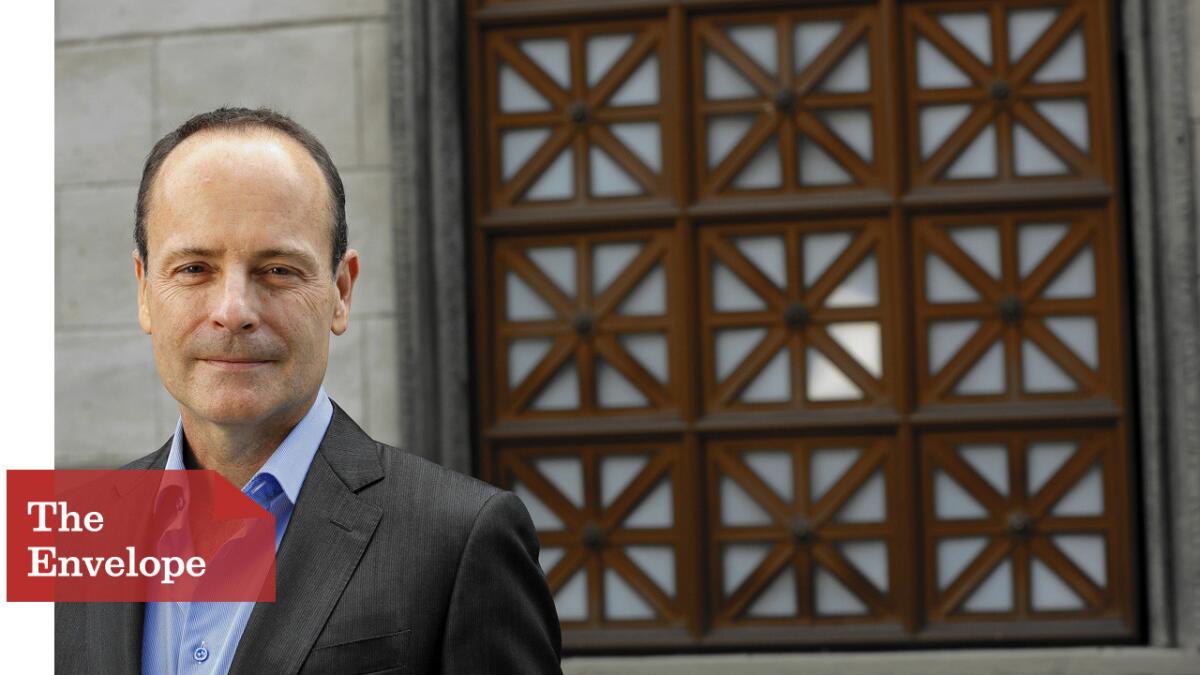Q&A: FX president John Landgraf looks for ways to stretch, spotlight and rewind

FX Networks President John Landgraf sees advantages in all the platforms on which viewers watch TV shows now.
When John Landgraf took over as president of FX Networks in 2004, the cable network had two original scripted series. His portfolio is now closer to 20 shows, many of which are produced in-house, giving the network a strong hand in creating edgy television that often lands on critics’ best-of lists and earns award consideration. Landgraf explains why he thinks the FX approach is built for the new television age.
You have always stressed the importance of FX being a distinctive brand. But new technology for viewing has made it even more vital, true?
I wrote a memo several years ago in which I thought a lot about the future and suggested — and I still believe this — that FX’s success in the future lies in it being a successful multiplatform brand. At that time, we were almost exclusively a linear channel. But I think we’re going to have to be a multiplatform brand, comprised of content viewed and delivered on linear channels, apps, dot-coms, partner apps, streaming video on-demand services and on home video — in every way that consumers want to consume the content.
FULL COVERAGE: Emmys 2015
Has there been a greater payoff in your decision to own so much of your content now that there are so many other places to show it or sell it?
We got into the program ownership business primarily for creative reasons. Everything about our business is designed to create the best possible experience for creative people to do the best work they can — and, so, essentially, becoming the studio, in most cases, as well as the network was a part of unifying that process. But, as it turned out, it was very much the right thing to do economically, as ad sales became more challenged on linear channels. And it was even more the right thing to do from a branding standpoint. Because ultimately, again, the brand has to travel beyond the linear channel because so much consumption from consumers is now happening in other ways.
Do awards help a show find a new audience, with viewers’ ability to watch on demand?
I think an Emmy nomination, or win, can help people move a program into their consideration set. And now there’s every opportunity. “The Americans” is almost three seasons old, but it’s still — now it’s very possible for someone to enter it at this late date and catch up with it, just as they did with “Breaking Bad.” You know, many of them who had never seen it before watched “Breaking Bad” before the final season. So I think that’s a relatively new phenomenon in television. I think that’s been influenced by all the nonlinear availability of content.
“The Americans” isn’t a huge ratings hit. But you mentioned that its audience includes President Obama and his family. Why is that meaningful to you?
It’s meaningful in the sense that you want influential people to love your programming and love your brand. That would include, by the way, writers and filmmakers and actors and other people that we might want to be in business with. So “The Americans” and “Fargo” and also “Louie.” These are really important standard-bearers for our brand, from a qualitative standpoint.
What’s your great Emmy hope for this year?
I have no doubt that “The Americans” is one of the best dramas on television. I don’t think anybody who watches a lot of television doesn’t believe that. And so I’d certainly like to see the Emmys finally get around to recognizing that through a nomination. And I think, frankly, if they nominate it, the episodes we’ll be able to field and show them will be competitive with any show on television. I think we had some extraordinary work done by “American Horror Story” this year. And I think “Louie” is better than ever.
More to Read
From the Oscars to the Emmys.
Get the Envelope newsletter for exclusive awards season coverage, behind-the-scenes stories from the Envelope podcast and columnist Glenn Whipp’s must-read analysis.
You may occasionally receive promotional content from the Los Angeles Times.







